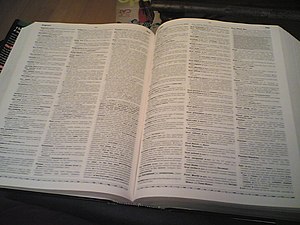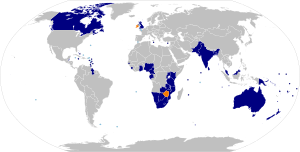 |
| English: So many words to keep track of!. (Photo credit: Wikipedia) |
If ever a writing rule was overstated, it must be this one. Once it
becomes evident that there are more exceptions than examples following a rule,
the rule becomes seriously unhelpful; redundant at best.
We all know about receipt, receive, ceiling, etc. But there are actually
more words used in English that have the ‘ei’ construction than those using
‘ie’.
Don’t believe me? I offer a mere handful:
Heir, weir, Eire, weird, being, deific, leisure, meiosis, neighbour, eisegesis,
neither, peignoir, reiki, seismic, vein, weigh, zein, either, feign, height, rein,
reiterate, seine, seize, teise, veil, zeitgeist, eight, deign, deity, eider,
feint, heifer, heinous, Leicester, peise, reign, feisty, geisha.
Have a think: I’m sure you’ll find hundreds more.
Okay, I accept that some of these are ‘foreign’ words, but English is a
conglomerate language, made up of words and expressions stolen from invaders
and the victims of Britain’s ancient and extensive empire. Modern English is
said to contain over 1,000,000 different words, exceeding any other language.
So, to return to the rule: forget it. Your English teacher was wrong.
Most schools in Britain have stopped preaching this erroneous rule now, so you
can allow yourself to ditch it as well. Go on, you know you’d love to. It’s not
helpful.











